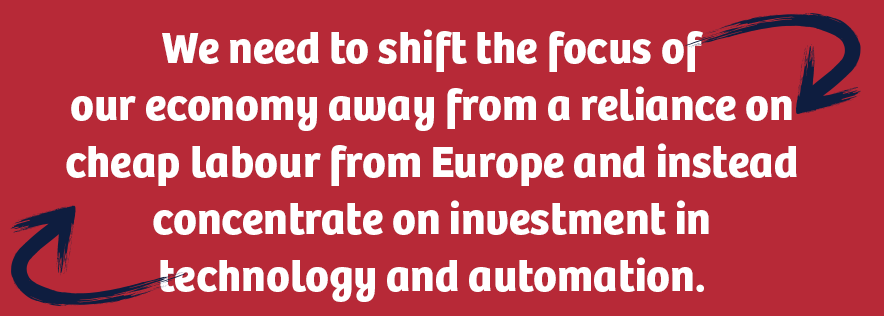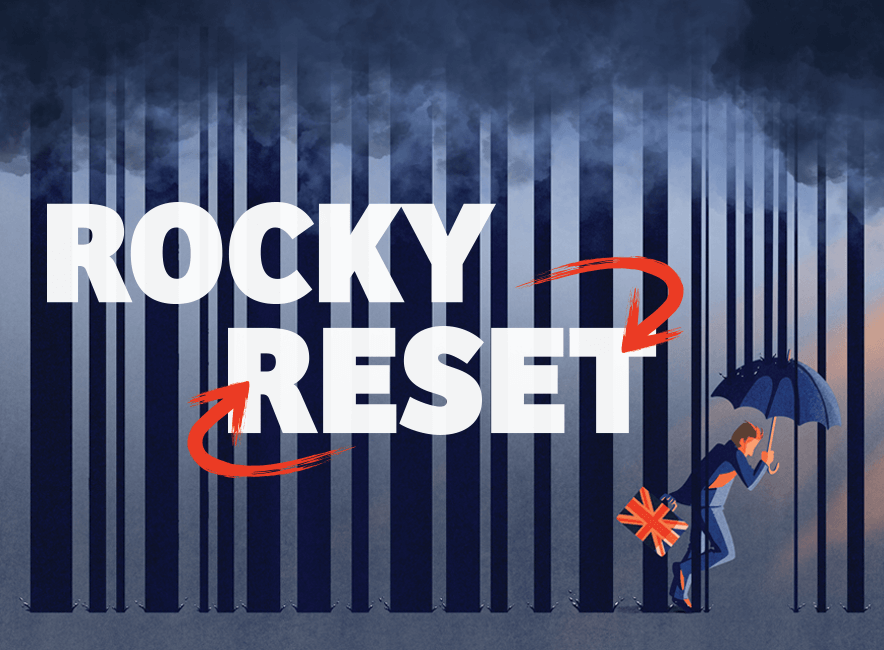No Clean Break for Brexit
Britain and the European Union managed to reach a trade agreement on 1 January 2021 about the UK’s decision to leave the bloc. The news shone a little relief into the new year after dealing with COVID-19 for the better part of 2020. Britain’s economy was one of the hardest hit by the coronavirus pandemic; Reuters reported that the UK economy fell by almost 10 percent in 2020—the biggest recession the country has experienced in the past 300 years.
Commerce between the EU and Britain generates an estimated $1 trillion every year. But even with a deal in place, businesses worry about their resiliency and ability to maintain cross-border operations. Companies are encountering challenges presented by additional paperwork and regulations that are part of the EU-UK Trade and Cooperation Agreement when trying to ship goods or hire staff. Although the last-minute agreement did alleviate some anxiety that had built up after the 2016 vote to leave the EU, parts of the deal also remain unrefined, calling for additional negotiations between the two parties.
Prior to the agreement, British companies were able to import and export goods with the EU without being subject to tariffs or taxes.
Without the deal, tariffs would have increased prices on cars and other goods; however, obstacles to smooth shipping are still cropping up after the agreement. News outlets reported that businesses of all sizes are experiencing an increase in customs paperwork and additional regulatory challenges, such as using the UK government’s New Computerized Transit System (NCTS).
Supermarkets and food distributors reported concerns that grocery stores in the UK would start to see a scarcity of supplies, especially imported items, unless the parties could agree to simplify border checks.
“Of particular importance is the Dover-Calais supply route, through which approximately 10 percent of food consumed in the UK passes,” according to a January report from security risk management consultancy firm A2 Global Risk.
A shortage of British customs agents and other specialists, such as veterinarians to perform health assessments for livestock crossing the border, exacerbated issues with new customs declarations and requirements, the A2 report assessed.

In mid-January, Scottish and British seafood vendors—outraged over how the trade agreement was playing out—used their delivery trucks to stage a protest in central London. Some of the trucks parked in front of government offices displayed their company name or logo, while other vendors added slogans on the sides of trucks to claim that the deal risked the destruction of the shellfish industry altogether. Protesters claimed prices for fish and shellfish dropped because exports were stalled at the border due to additional bureaucratic obstacles, resulting in catches rotting in delivery trucks before reaching buyers and markets. (The additional paperwork created by the deal—catch certificates, health checks, and customs declarations—has severely delayed exports, according to The Scotsman.)
The A2 report also noted that food distributors are not the only ones left with a bad taste in their mouth over shipments disrupted by Brexit. Major German-based logistics operator DB Schenker announced in mid-January it was “suspending deliveries from the EU to the UK due to the ‘enormous bureaucratic regulations’ required after Brexit.”
DB Schenker said the suspension of cross-border delivery services would remain until it could onboard additional staff to deal with increasing paperwork for customs, the A2 report said.

The report recommended that other logistics firms similarly devote resources—whether in the form of training or new hires—to ensuring paperwork for any operations involving the crossing of the EU–UK border is correctly handled.
However, workforce availability and immigration are also altered by the agreement. Just like goods, people within the EU were previously able to move freely within the bloc’s borders, including to the UK. Exiting the EU’s single market set-up—where member states agreed to shared rules so goods, services, money, and people could move freely between them—also meant that as of 1 January, any worker from outside of the UK had to adhere to the country’s immigration laws.
The UK Home Office announced details in February about the points-based immigration system that replaced the free movement once enjoyed across the EU.
“We will reduce overall levels of migration and give top priority to those with the highest skills and the greatest talents: scientists, engineers, academics, and other highly skilled workers,” the Home Office said in a press release. “…We will not introduce a general low-skilled or temporary work route.”
Bruce Braes, CPP, PSP, head of security consulting for Buro Happold, says much of the security workforce in the United Kingdom is from Eastern Europe.
“The manned security business is going to start to struggle because immigration is going to change,” Braes says.
“With European nationals requiring a working visa, this may put pressure on the employment market,” explains Helmey El-Aasar, sales director for SmartSec Solutions and former strategic new business development director for G4S. El-Aasar, who is based in the UK, adds that a company’s level of concern will depend on how long such employees have been working in the UK and whether they qualify to remain in the country post-Brexit.

European nationals already living and working in the UK who meet government requirements can apply to the EU Settlement Scheme, which would allow them to stay and work in the country after 30 June 2021.
“I see in the future that organizations such as SmartSec will be competing with each other to employ suitable personnel from a smaller pool,” El-Aasar says. “Our strategy in relation to this is to ensure our terms and conditions for our employees are continually assessed against the competition, confirming they are favorable, our levels of pay continue to attract the candidates we are aiming to employ, and our approach to job advertising is continually reviewed—ensuring we are appealing to the widest possible audience.”
To continue attracting talent, SmartSec is gradually expanding benefits outside of a paycheck to its workforce. These include programs like Perkbox, which gives employees discounts to several major retailers, and making death in service cover a standard benefit for all staff. This is different from life insurance; instead, an employer would pay a lump sum to a designated beneficiary if an employee dies while employed by the company.
The UK Home Office announced in February more details on who could qualify for work visas.
“We need to shift the focus of our economy away from a reliance on cheap labour from Europe and instead concentrate on investment in technology and automation,” according to a Home Office press release.
And UK companies may indeed place a greater reliance on security technology if the talent pool continues to shrink and the local economy still works to recover from both Brexit uncertainty and the pandemic.
But the push for automation means technology-capable security personnel will be in greater demand.
“There will always be a requirement for security operatives to monitor implemented technology or systems and respond to the alarms and exceptions they flag,” El-Aasar says. “I also foresee that this change in the nature of the security officer role will attract a different type of candidate that is technologically savvy, and the general perception of the security officer role changing to that of a career choice for many who may have not been interested in the past.”
Alternately, a recent study from the International Journal of Operations & Production Management found that other companies might circumvent staffing headaches in the UK altogether. The study surveyed 38 representatives from multinational companies with supply chains impacted by Brexit. Most of the representatives said their organizations relocated or intend to relocate their production facilities from the UK to the EU, while their distribution centers will shift from the bloc to the UK.
“This was because of market-seeking advantages (being close to major centres of demand, ease of access to local and international markets) and efficiency-seeking advantages (costs related to expected delays at ports, tariff, and non-tariff barriers),” the report said.
Sara Mosqueda is assistant editor at Security Management. Connect with her at [email protected]. Follow her on Twitter: @ximenawrites.
